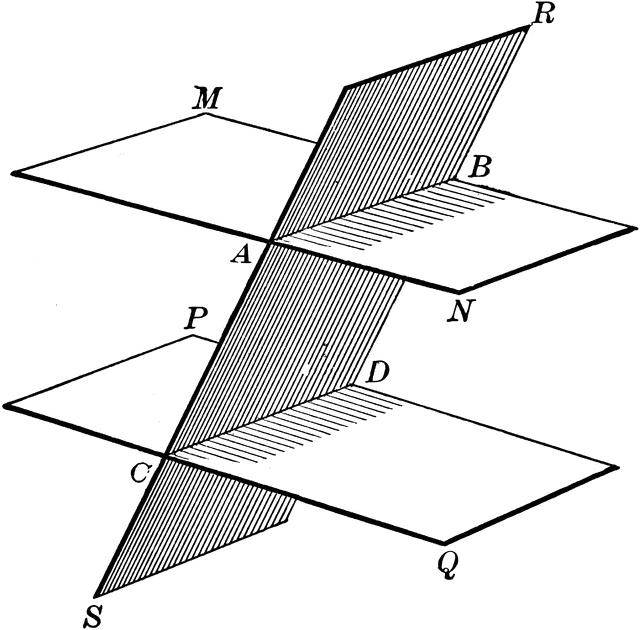ma211: Linear Algebra I - w25
 (CC BY-SA 4.0) : link
(CC BY-SA 4.0) : link
Class Meetings
- Winter 2025 (Jan13 → May3)
- MWF 9:00-9:50AM
- TFA 233
- zoom link - passcode 591978
Instructor

Daniel Rowe
darowe{at}nmu{dot}edu
I'm an associate professor of mathematics in the Mathematics and Computer Science Department at Northern Michgan University. I've been a professor at NMU for nine years, and I am very passionate about the praxis of doing mathematics and teaching it. I grew up on a fishing camp in Northwestern Ontario, Canada.
Need Math Help?
- Office Hours
- W 1-2, R 11-12, F 11-12
- JXJ 2228
- zoom link - passcode 809390
- read the relevant section(s) of our materials
- study all posted solutions
- re-watch the recorded lectures
- math tutor lab
Class Structure
- hybrid-flexible, in-person and over zoom
- recordings available 2-3 days after each class
- strive for in-person attendance
- avoid becoming reliant on zoom and recordings!
- use them for extenuating circumstances only
- engagement is vital to learning mathematics (or anything)
- I don't take daily attendance, but...
- overall attendance is 5% of your grade
- (40%) Homework
- (5%) Collaborative In-Class Quizzes
- (20%) Traditional In-Class Midterm Exam
- (30%) Traditional In-Class Final Exam
- (5%) Attendance
Grade Scale
A (92-100%)
A- (90-91%)
B+ (86-89%)
B (82-85%)
B- (80-81%)
C+ (76-79%)
C (72-75%)
C- (70-71%)
D+ (66-69%)
D (62-65%)
D- (60-61%)
F (≤ 59%)
Learning Outcomes
This is a course on the fundamentals of linear algebra. We will study matrices, matrix multiplication, and how to express linear systems via matrices. We consider the geometry of linear systems and then solve them via elementary matrices and echelon forms. Then we move on to vector spaces, subspaces, linear transformations, and the dimension formula. Finally we look at concepts related to a single linear operator: the determinant, conjugacy, eigenspaces, characteristic polynomials, and diagonalization. Throughout this course we will study various applications of linear algebra, for example, analyzing network flows, balancing chemical equations, calculating volumes, analyzing long term behaviour of markov processes, and solving recurrence relations.
Success in College Courses
- the instructor's job is to ensure the course content is clear, organized, and interesting
- your job is to attend as many classes as you can, engage your mind, ask questions, read, and budget (at least) 1-2 focused hours every week
to work on the course content
Academic Honesty
In the spirit of academic honesty, credit for this section is due to Asher Auel, as this is an adapted form of their discussion of academic honesty in mathematics.
- Working with others on mathematics, and using electronic resources is both highly encouraged and fun. You may work with anyone (e.g. classmates, non-classmates, tutors, etc.) If this is done well, you'll learn more effectively and efficiently.
Here's the fundamental rule:
Work with anyone or anything to develop your own personal understanding of the ideas required to solve your homework problem, but always write-up the final draft by yourself and in your own words.
- Writing up the final draft is just as important as figuring out the problems on scratch paper with your friends, using the internet, ChatGPT, etc. If you work with people, or use electronic resources on a particular homework:
You must list your collaborators and electronic sources at the top of the very first page. This makes the process completely transparent and honest.
A Note About Copying Mathematics
Mathematical writing is idiosyncratic; if your assignments are copied, it is quite easy to tell. You will not learn by copying solutions from others, or from external sources such as internet forums (e.g. math.stackexchange) and generative AI (e.g. ChatGPT). Regarding internet forums, you are free to look at them and use any understanding you've gained from them. Be warned that internet forums often contain incorrect or circuitous solutions, misleading discussions, use of techniques outside of the course material, and other material that may be detrimental to your learning process. Even the time that it takes to repeatedly search for solutions and read through dozens of forum posts could be better spent learning the material on your own or composing a question to the instructor or classmate. Regarding generative AI (e.g. ChatGPT), you are free to experiment with asking questions, but be warned that these systems are currently still very bad at deductive reasoning, and that the output may contain a mix of correct, incorrect, and unverified statements. Ask them to prove something false, they will work hard to do so, often giving contradictory answers. Therefore, I would be very careful with using these tools as learning resources on your own.
Punishments
In this modern world of online resources, cheating, copying, copy-and-pasting, ChatGPT, etc.; it is now more important than ever that citizens develop the intelligence to use their own brain to solve problems. I want my classes to be a postive force in this regard, by promoting the principles of academic honesty, and punishing those who disrespect those principles. The first infraction will result in a 0% on the entire assigment and a stern warning. If there is a second infraction, I will pursue sanctions through the Dean of Students office.
Accessibility
If you have a need for disability-related accommodations or services, please inform the Coordinators of Disability Services in the Dean of Students Office at 2001 C. B. Hedgcock Building (227-1737 or disability@nmu.edu). Reasonable and effective accommodations and services will be provided to students if requests are made in a timely manner, with appropriate documentation, in accordance with federal, state, and University guidelines.
Reading Materials
Homework + Quizzes + Exams + Extra Credit
- hw1 → sol (posted 2/4 @ 10:30am)
- hw2 → sol (posted 2/13 @ 3:20pm)
- hw3 → sol (posted 2/25 @ 12:30pm)
- hw4 → sol (posted 3/18 @ 2:20pm)
- hw5 → sol (posted 4/17 @ 10:00am)
- hw6 (due 4/27 @ 11:59PM) → sol
- quiz1
- practice midterm → sol
- midterm_exam → sol
- practice final → sol
- final_exam
- extra credit problems
- list of extra credit problems
- (please read the instructions before you submit)
- repository of solved extra credit problems
- (check which problems have been solved already!)
Submitting Your Work
- quizzes, midterm, final: physical paper in-class
- for extra credit: email me a .pdf (read instructions in the link above)
- for homework: put a .pdf file inside our shared google folder
- the shared google folder will be titled w25_ma211_yourlastname
- I will share it with you within first two weeks of class
- please don't submit anything via email attachment
- name your files in an organized manner, for example: hw1_Jane_Smith.pdf
- always show your work and keep it organized
- indicate/circle/highlight your answers
- answer the questions in the correct order
Late Submissions
- for quizzes, midterm, final: submitted in class on the day
- for homework submissions: no late penalty until
the solutions are posted, then -50%
Checking Your Grade
- you can check your grade anytime, look for
untitled spreadsheet in our shared folder,
it will appear after the first few assignments
have been graded
Schedule + Recordings
> colored text = clickable links
> late homework may be submitted anytime during the semester
> before the solutions are posted (-0%), otherwise (-50%)
wk1: jan13 → jan17
□ study this webpage and all class information
□ study the lectures
□ start working on hw1
- 1/13
- announcements
- introduction to solving linear systems
- matrices
- matrix sizes, locating entries
- 1/15
- matrix multiplication
- the meaning behind matrix multiplication
- geometry of vectors
- 1/17
- geometry of solution sets
- augmented matrix forms
- parametric vector form of solution sets
wk2: jan20 → jan24
□ study the lectures
□ keep working on hw1
- 1/22
- parametric vector form of solution sets
- geometry of solution sets
- 1 eq in 3 var = plane in R3
- 1/24
- help with hw1
- elementary row operations
- intro to solving linear systems
wk3: jan27 → jan31
□ study the lectures
□ finish up hw1
□ start working on hw2
- 1/27
- elementary row operations
- intro to solving linear systems
- 1/29
- echelon forms
- reduced-row echelon forms (RREFs)
- 1/31
- reduced-row echelon forms (RREFs)
- geometry of solution set
wk4: feb3 → feb7
□ study the lectures
□ keep working on hw2
- 2/3
- solving systems
- gaussian eliminition
- 2/5
- SECOND HALF OF RECORDING IS MA412 - sorry!
- gaussian eliminition
- balancing chemical equations
- 2/7
- help with hw2
- analyzing network flows
wk5: feb10 → feb14
□ study the lectures
□ start working on hw3
- 2/10
- fitting curves through points
- 2/14
- linear families of linear systems
wk6: feb17 → feb21
□ study the lectures
□ finish up hw3
- 2/17
- no recording (forgot laptop)
- short, 30 min class
- help with hw3
- 2/19
- last question from HW3
- abstract vector spaces
- the span of a collection of vectors
- 2/21
- examples of vector spaces
- help with hw3
wk7: feb24 → feb28
□ study the lectures
□ start working on hw4
- 2/28
- no class - rowe travelling
wk8: mar10 → mar14
□ study the lectures
□ keep working on hw4
□ study for midterm exam next wed
- 3/10
- bases and dimension
- subspaces of vector spaces
- span and null as subspaces
- 3/12
- finding the equation(s) for a subspace
- 3/14
- pi day
- finding the equation(s) for a subspace
- midterm review
wk9: mar17 → mar21
□ study the lectures
□ midterm exam on wednesday
□ start working on hw5
- 3/19
- midterm exam (in-class exam)
- 3/21
- orthogonal complements: W⊥
wk10: mar24 → mar28
□ study the lectures
□ keep working on hw5
- 3/24
- no recording of today - sorry!
- lecture notes
- nullspaces are preserved by row ops
- column spaces are preserved by col ops
- The Rank-Nullity Theorem
- 3/26
- elementary matrices
- intro to inverses
- 3/28
- inverses of elementaries
- inverses of general matrices
wk11: mar31 → apr4
□ study the lectures
□ keep working on hw5
- 4/2
- inverses of general matrices
- intro to determinants
- 4/4
- determinants via elementary matrices
wk12: apr7 → apr11
□ study the lectures
□ finish up hw5
- 4/7
- determinants via elementary matrices
- 4/9
- cofactor expansion formula
- help with hw5
- 4/11
- help with hw5
- the vector cross product
wk13: apr14 → apr18
□ study the lectures
□ start working on hw6
- 4/14
- recording first half: ma211
- recording second half: ma412
- using cross product to find
- the equation of a plane
- intro to eigenvectors
- 4/16
- eigenvalues, eigenvectors, eigenspaces
- the characteristic polynomial
- 4/18
- algebraic and geometric multiplicities
- the 3x3 example
- diagonalizability
wk14: apr21 → apr25
□ study the lectures
□ finish up hw6
- 4/21
- Application of Diagonalization:
- Recursive Sequences
- 4/23
- Application of Diagonalization:
- Recursive Sequences
- help with hw6
wk15: apr28 → may2 (FINAL EXAM WEEK)
□ final exam date: Tues 4/29 @ 8am
□ traditional in-person exam
□ no electronic devices
□ complete any late homework for 50%
□ deadline for extra credit and late homeworks
□ Thursday 5/1 @ 11:59PM

 (CC BY-SA 4.0) : link
(CC BY-SA 4.0) : link